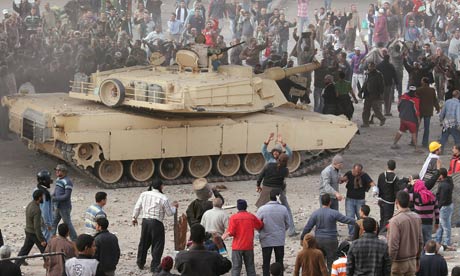PORT-AU-PRINCE, Haiti -- After exhaustive delays, Haiti's electoral council announced today that presidential candidates Mirlande Manigat and Michel Martelly will go forward into the next round. The candidate promoted by current President Rene Preval, Jude Celestin, was scrapped.
By now, though, many seem too tired, and too sad, to care.
In December, Racilia and Exolem Moise lost their son, Exius. He was 35 years old. He had a 2-year-old son. He was hit by a truck, while driving a motorcycle in Cite Soleil, which was how he earned a living.
Emily Troutman for AOL News
Exolem Moise holds a photo of his son, Exius, who was killed in a hit-and-run accident in December. His death has destroyed any confidence his father may have had in Haiti. "Haiti's not secure at all. There is no Haiti," Exolem Moise says.
He died six blocks from his house. In front of a police station. A stone's throw to a hospital. The truck drove off.
It's not an election story, not really. Except that, now, the Moise family couldn't care less. Politics? No. The death of their son launched them firmly from skepticism into despair.
"Haiti's not secure at all. There is no Haiti. I don't even feel like I have a country. It is not mine," Exolem said. He looks tired. But he is a father in mourning. If he is weakened, he is not weak.
On Wednesday, young men in the street nearby wore Celestin t-shirts, under another T-shirt. At once ready to declare allegiances, and hush them, too, on a moment's notice.
They were Celestin supporters and friends of Exius Moise. They have a lot of ideas. Each morning, they would gather around a graffiti-colored wall and banter, rearranging the hours into days. Moise's parents paid them no mind.
"I had a son who died," Racilia said, plainly.
She wonders what it means to dream, to clutter the moment with ambition, to own a house, and more. She wonders what kind of vote lets a mother outlive her son.
"I don't imagine anymore. Only God knows."
The future makes way for the past. And Racilia's husband allows himself to remember. There was a time in Haiti, he said, when things weren't like this.
"If you got hit by a car, and killed, a justice official came to take a report. Someone took you to the hospital," he said.
It is an election year in Haiti, and in celebration, in speculation, and in rejection and decision, some fight. Some stay quiet, like the Moise family. Many say nothing at all.
Political candidates are called by their first names and nicknames: "Jude," "Micky," "Mirlande." They are known from the time before time. It's an island -- half an island.
Candidates are known for the neighborhoods they grew up in and the failures they never quite escape. They are known for the failures of their brothers and their fathers, too.
Despite what's at stake, or maybe because of it, people make distinctions out of hand.
Joel Basquiat, 42, on Martelly over Manigat: "They're completely different. Where Mirlande lives, it's really dirty. No one can walk by or pass with a car."
But an anonymous neighbor weighed in, favoring her: "She's got a pace I respect. She's strong. I think she's a good politician."
James St. Fleur, an onlooker, vowed to say nothing at all. When pressed, he allowed his voice to rise by increments. Like 80 percent of Haitians, he didn't vote in November.
"All of the candidates," he whispered, "say one thing when they're running for office, do something else when they win. If what they say, they could apply, the country would be different."
As if to prove his point, along the storefronts and carcasses of cars beside him children wandered naked, road-raised and heedless, throughout the afternoon.
"What candidates? What election? What change?" St. Fleur seemed to shrug.
"Maybe," he said, "destiny will bring someone. It could be someone like Jesus Christ. No one knows where he's going to come from or when."
He suggested, though he doesn't quite say it, that deliverance is a thing of faith, not politics.
Somehow, though, earthbound questions like his -- "when?" and "who?" -- rise up out of the street, suggesting hope.
Exolem Moise listened in with his face unmoved, then leaned toward home. His son drove a motorcycle taxi. He died alone, in the fading taillights of a truck.
He agrees, almost, with St. Fleur.
"If we had someone who could do something with us, the whole place could be clean," he said. "All of this. As it is, the kids just keep asking for money."
Manigat versus Martelly? Neither, he said. Also "neither" is his son, swept up young. His wife, Racilia, touched his arm. His daughter, Louisiana, nodded her goodbye. They walked away from the crowds until they were indistinguishable from them.
Exolem turned back, and said, "That's why I believe in God, not human beings."




 An army tank moves into Tahrir Square to keep Mubarak supporters (top) separate from anti-government protesters. Photograph: Peter Macdiarmid/Getty Images
An army tank moves into Tahrir Square to keep Mubarak supporters (top) separate from anti-government protesters. Photograph: Peter Macdiarmid/Getty Images

 This post also available in:
This post also available in:
















